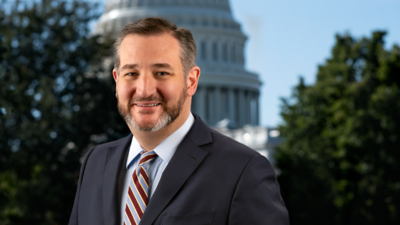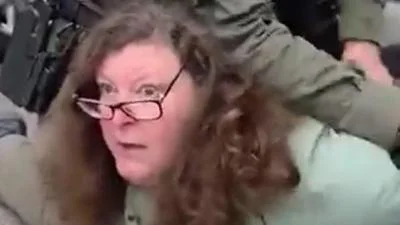Morgan Aranda testifying before lawmakers at a Joint Elementary and Secondary Hearing Wednesday.
Morgan Aranda testifying before lawmakers at a Joint Elementary and Secondary Hearing Wednesday.
Morgan Aranda and Tamara Reed, who said they were sexually abused while students at Chicago Public Schools (CPS), poured their hearts out at the Joint Elementary and Secondary Hearing Wednesday.
Holding an impromptu hearing this week to address the recent Chicago Tribune expose of sexual abuse at CPS, GOP lawmakers found themselves appalled as they listened to Aranda and Reed tell their stories.
Aranda began noting how she worked tirelessly to attend the highly selective Walter Peyton College Prep to only be sexually abused.

Sen. Sue Rezin (R-Morris)
“I was so excited to learn,” she said before she began to detail how her World Studies professor began abusing her at the age of 14. “The school had lost its sense of wonder and excitement, and so had I.”
Continuing in tears, Aranda detailed how her professor perpetually ignored her in class in an effort to have her approach him alone.
“He made me doubt myself in a way I never had before,” she said.
It was not the actual abuse that devasted her, however. Aranda said the interrogation she was subject to by CPS authorities was just as detrimental -- “The questions of my dignity, of my intent, of my character after I had been assaulted by my teacher,” she said.
Like, Aranda, Reed expressed how she too was questioned at length without representation, with CPS officials blaming her for violating dress code and interaction with her abuser at Black Magnet Elementary.
“I continue to be held back and limited in my life because of what happened,” Reed said, adding it is not just her academic career that has suffered. “I always isolate myself from others as a wall of protection.”
First to address the students, Sen. Sue Rezin (R-Morris) thanked the young women for their “powerful and compelling testimony” before asking them to recount the interview process. After both expressed the countless times they had to retell their stories to school officials, Rezin expressed her unbelief.
“So this whole time you went through this process you really didn’t have an advocate in the room or a counselor helping you,” Rezin asked.
After answering no, Aranda detailed how after the abuse she began failing while having to remain in the same classroom with her abuser.
“So there were red flags going up everywhere,” Rezin said.
Rep. Dave McSweeney (R-Barrington Hills) began calling the young women heroes.
“You two were wronged, but you are helping to bring about positive change now from your experience,” he said.
McSweeney said the girls are owed an apology on behalf of the state and CPS while lawmakers work on legislation to prevent future abuse.
“The Chicago Tribune had done excellent reporting on this,” he said, before asking the two young women if one thing could be done to stop the abuse what would it be.
Though Reed expressed holding officials who are made aware of the abuse and cover it up as accountable as the abuser, Aranda went one step further.
“I think you need to stop hiring sex predators, I think you need to fire sex predators and I think you need to not pay sex predators,” Aranda said.
Rep. Robert Pritchard (R-Sycamore) thanked the young women for their bravery in living through the tragedy and said the process must change.
“There should be one interview with all of the interested parties there so the victim does not have to go through and give their statement again and again and again,” he said. “It is unimaginable that we don’t use the best practices possible to deal with the tragedy and help the victim get on with their life.”
Rep. Michael McAuliffe (R-Chicago) agreed.
“Another point that was brought up and was disturbing was how they kept asking you what you were wearing,” he said. “That should not have been any part of the question and the police should have been there right off the get-go.”





 Alerts Sign-up
Alerts Sign-up